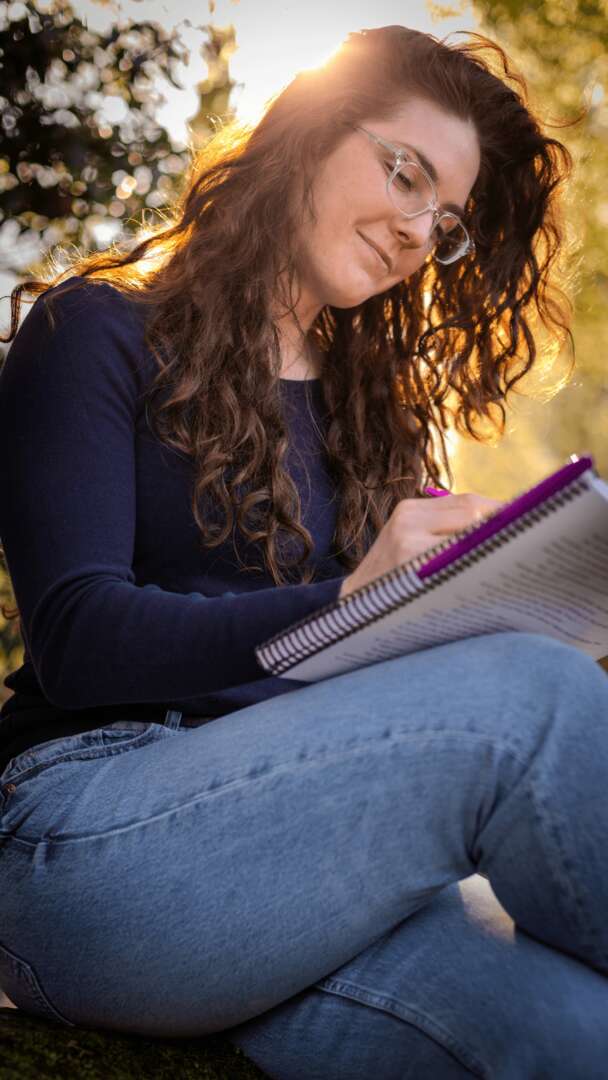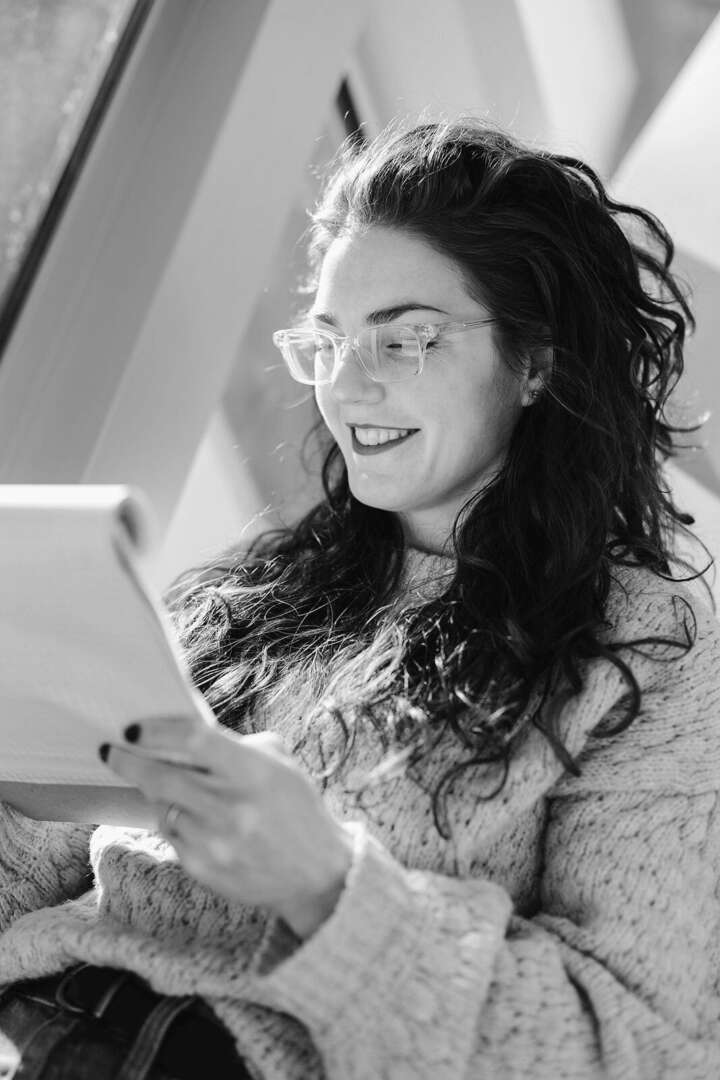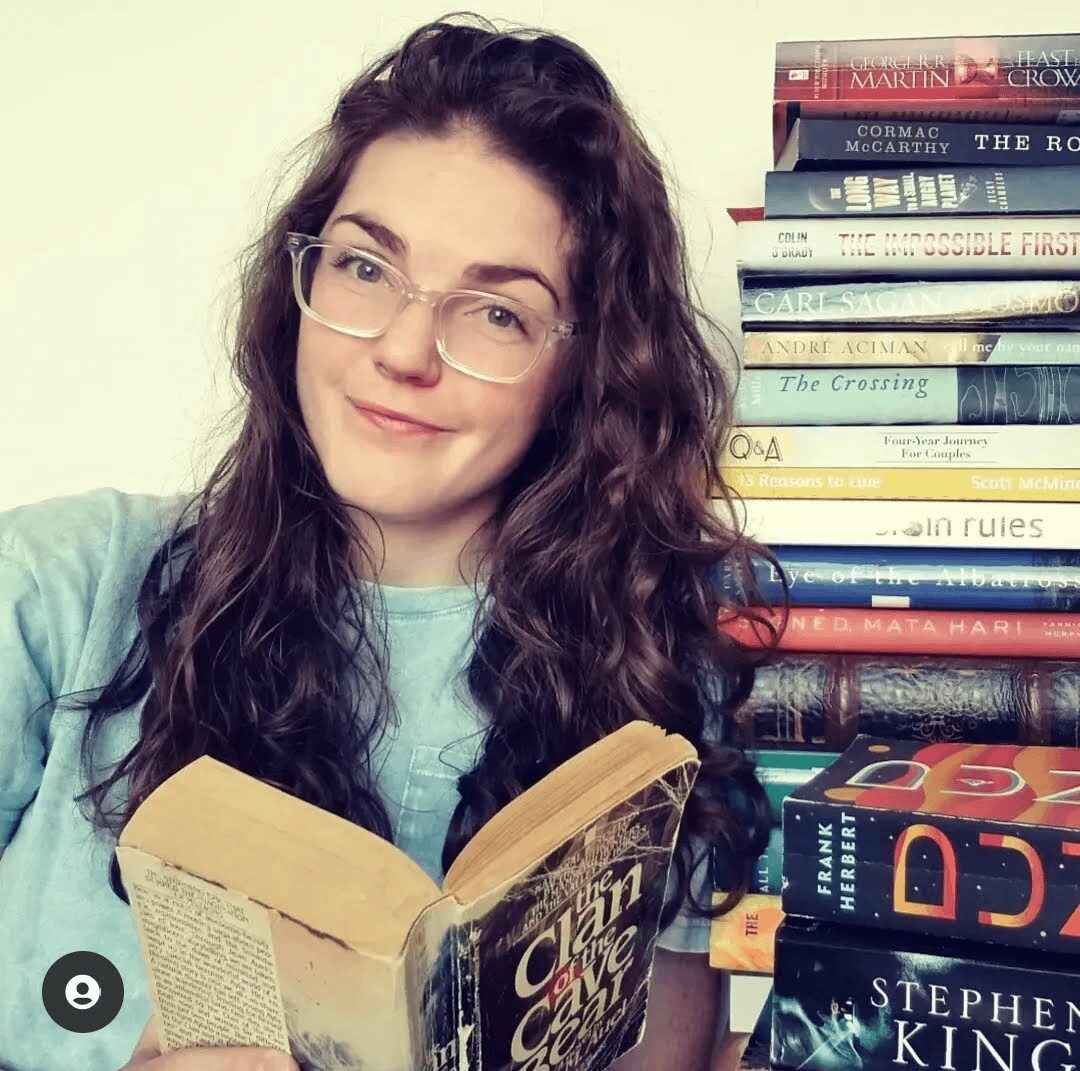Alright – so today we’ve got the honor of introducing you to Rain Sullivan. We think you’ll enjoy our conversation, we’ve shared it below.
Rain, looking forward to hearing all of your stories today. Can you talk to us about how you learned to do what you do?
Learning to write a novel is definitely a Choose Your Own Adventure kind of saga. You get the idea to write something incredible, the idea chews tirelessly at the back of your brain, you finally, finally, sit down to write it, and haven’t the faintest clue of how to begin… Where to begin? Maybe you type “Chapter One” and the words fly, maybe you create an outline, or deep dive down a Google rabbit hole on a topic mildly related to what you want your book to be about…
Here’s the thing: there’s no right way to start and no perfect way to proceed.
If you’re like me, you’ll do a bit of everything: a little research, some drafting, a reverse outline for the chunks you’ve written on a whim, an outline outline for the chunks you haven’t. Then, after a year of thinking this is the coolest, most insane thing you’ve ever done, you’ll have a messy, real, amazing-yet-totally-cringe first draft.
Now, and maybe you noticed this, Baby-Writer-Rain did no structured learning prior to writing draft one of her novel. Some folks will tell you that craft books, courses, and podcasts featuring successful authors are where you ought to begin, and maybe they’re right, but I’m so glad I wrote draft one blind. I can’t be certain, because I did not experience the alternative, but I think if I’d started the process “learning how,” I might have ditched the process on account of information overload.
However, post-draft one, that information desperately needed to be learned.
Moving right along to the “do as I say not as I do” portion of the chat…
My biggest “regret,” so to speak, of learning to write a novel, was snubbing the structured learning portion for so long. I ended up revising my book from top to bottom twice (about a year’s worth of work) before reluctantly taking an author’s advice to read Save the Cat! Writes A Novel by Jessica Brody, a craft book covering plot structure, character motivation, and story themes. Then I spent a lot of time rethinking and reworking and—dum, dum, dum—revising, when really I probably needed to be rewriting the book. Of course, I didn’t learn Matt Bell’s “when in doubt, rewrite instead of revise” philosophy until I was some eight tedious drafts and three tiresome years in. Highly recommend his book, by the way, Refuse to Be Done, a craft book on how to take your book from first to final draft.
When I step back and really think about why I chose the laborious route, the answer is much simpler than reluctance, than overwhelm, than some superiority complex—because yes, a slim slice of me hoped I was different, hoped I’d just know how to craft a novel. In truth, I was scared. Scared others might find out how much writing really meant to me. Scared I wasn’t cut out for it. Scared I was too far in to go back and start again.
Because the thing that turned my writing “hobby” into a pedal-to-the-metal pursuit, was accepting how badly I wanted to succeed and sharing that acceptance with others. Once I finally got over myself and owned that I wanted to be an author (and no, the self-doubt never truly goes away—it’s a good thing, keeps ya humble), I made writing buddies, went to writing conferences, read as many craft books as I could get my hands on, and blossomed creatively. I wrote more novels, entered short story and essay competitions, shared and swapped material with other “out there” authors, and stopped shying away from the ever-daunting rewrite. I’ve rewritten book one twice now and finally have something that’s making mini waves in the query trenches. Fingers crossed.
So, what’s my number one, super duper best tip? The holy grail of learning to write a novel? Do it all. Dive in head first, get comfortable being really uncomfortable, learn and keep on learning, try, and try, and try again. If this is truly what you want, tackle it from all sides and don’t stop until you have the novel you dreamed of having back when you typed “Chapter One.” Then do it all over again…

Rain, love having you share your insights with us. Before we ask you more questions, maybe you can take a moment to introduce yourself to our readers who might have missed our earlier conversations?
I’m Rain, I write spunky, world-bending, reality-foregoing sci-fi, fantasy, and dystopian short stories and novels that tend to have a deep, dark gooey center. I tip-toed my way into the craft with an epic fantasy series about the inevitability of loss, as one so casually does. It has since been rewritten and reshaped into a sci-fi/fantasy standalone (with series potential) that now lurks in the query trenches where it hopes to get plucked up by a literary agent. On my other burners, if you will, I’ve got a sapphic sci-fi, a paranormal mystery, and a rather tragic ghost story, all gearing up for their next round of revisions. The thing I love most about crafting stories is getting to peel back the many many layers of the human condition. Make-believe stories are rarely about the make-believe after all. For a taste of my writing style, check out my short stories “Luck and Other Things,” “Digger,” and “The Girl Behind the Glass”—published in Elegant Literature Magazine’s May, June, and September 2023 issues, respectively—on my website (RainSullivanWrites.com). Or if you want to say hi, find me on IG or TT @Write_as_Rain_Sullivan.

What can society do to ensure an environment that’s helpful to artists and creatives?
Pay us. Hah! *Laughs and cries simultaneously.* But, actually. We all say we love the arts, enjoy reading a great book, seeing a thought-provoking film, checking out the funky art galleries on First Ave… Some of us even say a line, a poem, a painting, a lyric, a leap across the stage has changed us forever, oftentimes, for the better. But we, as a society, do not value art. Not monetarily. We pull art from education, fund AI “art,” and stuff creatives into a teenie tiny, pressurized box. Some will become diamonds, sure, but most will perish.
I’ll be honest, I cannot break down the larger issues at play here (trust me, I get it, I feel voiceless as a voter (probably why I write otherworldly stories)), but I have a feeling funding education, especially art programs, and the arts in general—playhouses, museums, indie book stores—will help make a more welcoming and nurturing environment for creatives.

How did you build your audience on social media?
During the thick of the pandemic, I was two drafts into my first novel and had zero writing friends. I told one of my clients at the time (other job) that I was getting into writing and she revealed that her cousin was an author. That fabulous author then agreed to chat with me over the phone to answer some writing questions. She shared tons of resources and tips but stressed the importance of having writing friends. “Do not go it alone.”
I, trapped in a world of zoom calls and social distancing, figured myself screwed. Then, I begrudgingly turned to social media. It took me a while to make an Instagram account—I’d never been a huge social media user, I didn’t know what the heck a reel was, and how was a writer, a non-visual creative, supposed to appear on a very visual app?
In April of 2022, I broke down. I NEEDED writing buddies, so I created an account with the sole intent of meeting other writers. It was awkward at first, then I started commenting, sharing, posting about how I was looking for someone to read my first chapter and that I’d be happy to return the favor. Eventually, I got looped into group after group. Some stuck, others fell away, and eventually I found my tribe.
A few months later, with a couple hundred followers, I almost closed up shop. Then, I went to a book signing and, while swapping handles with a debut-author-to-be, was told, “You know what they say, never too early to start finding your readers.” I did not know they said that, but suddenly saw social media as a multifaceted tool. Community and, potentially, an audience.
So, I became a reel-making machine. One per day for sixth months. If it stuck, great. If not, fine.
A year later, I had 10k followers and almost too many writing buddies—four discords, two writing groups that met online, and one that met in-person. Now, another year later, I have 30k followers and am turning potential writing buddies away. But the real zinger, in the time I’d written one novel prior to joining, I’d written three post-joining. And got three shorts and an essay published.
When I say social media changed the game, I mean IT CHANGED THE GAME.
So, if you’re on the fence about hopping on the social media train, I say, go for it. Worse comes to worst, you find a few writing friends. Better comes to best, you start building an audience. Don’t worry if it doesn’t come naturally right away, you’ll find your groove. Some tips? Keep it real, keep it positive. I try to be my authentically flawed self online while still trying to be a net positive on someone’s feed. To do this, I focus on education, empowerment, and entertainment. The three E’s. If I’m not teaching you something about writing, I’m encouraging you to write. If I’m not directly encouraging you to write, hopefully I can make you laugh about the process.
Contact Info:
- Website: [email protected]
- Instagram: https://www.instagram.com/write_as_rain_sullivan/
- Other: https://www.tiktok.com/@write_as_rain_sullivan


Image Credits
Doug McCulloch – Sea To Summit Photography
Marty Theobald – Color Safe Photography


